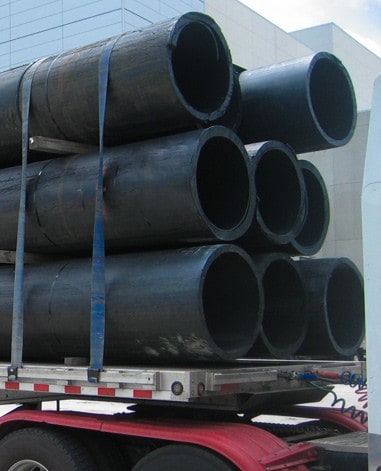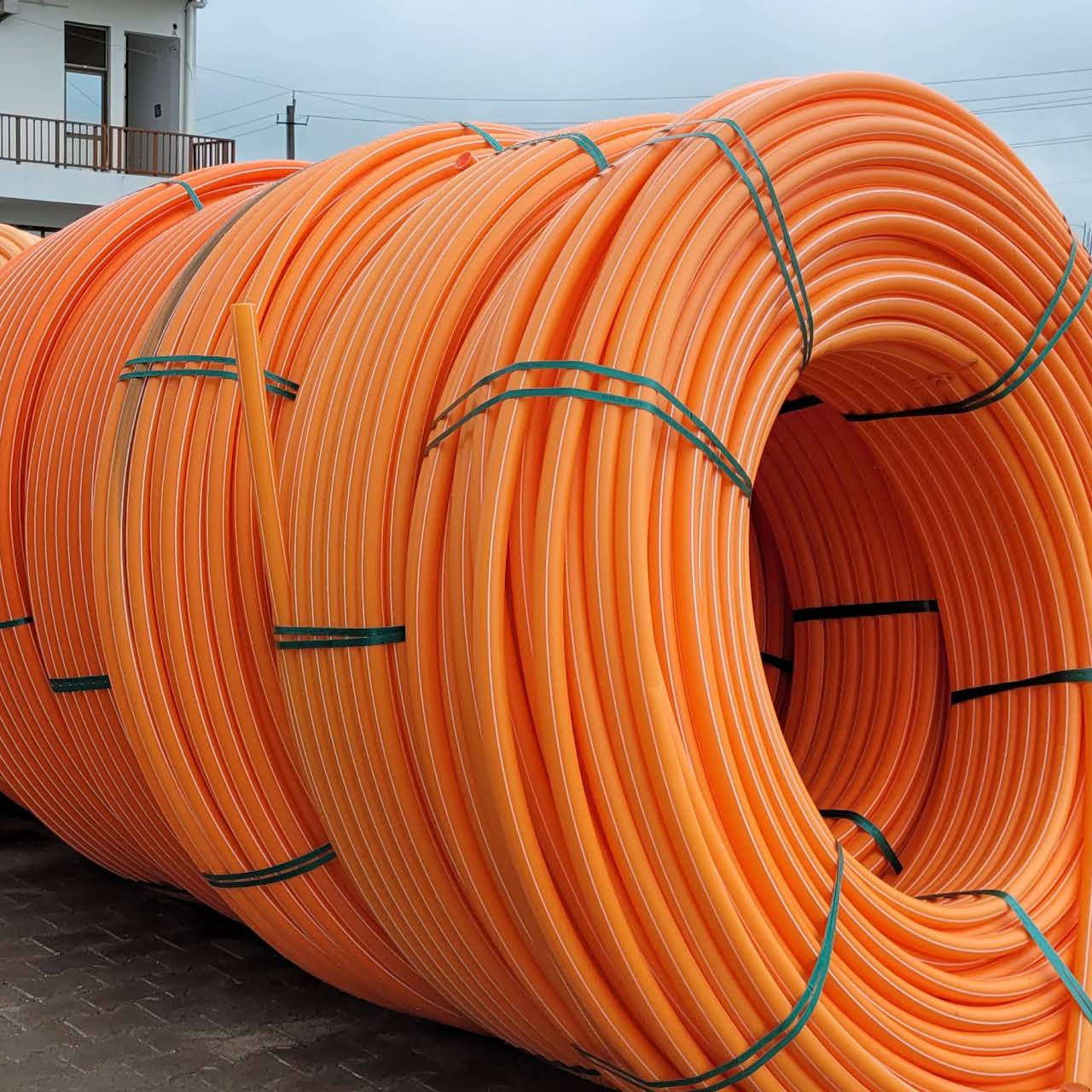Comprehending the Secret Perks of HDPE Pipeline for Water and Wastewater Monitoring
Making use of HDPE pipeline in water and wastewater monitoring offers many benefits that warrant factor to consider. Its remarkable sturdiness and long lifespan make it a preferred choice for numerous projects. In addition, the product's resistance to rust and chemical damage enhances its integrity in numerous settings. However, the advantages extend past simply long life and resistance. Exploring its cost-effectiveness and environmental impact reveals a lot more engaging reasons for its extensive adoption in modern-day infrastructure
Outstanding Resilience and Long Life

HDPE pipeline stands apart for its phenomenal sturdiness and long life, making it a preferred option in water monitoring systems. Constructed from high-density polyethylene, these pipes can stand up to significant pressure and anxiety, making sure reliable performance in time. Their durable nature enables them to sustain severe environmental conditions, including temperature changes and dirt movements, which can trigger various other products to fail.
The life expectancy of HDPE pipelines frequently goes beyond half a century, giving an economical remedy for communities and sectors alike. Additionally, the material's light-weight residential properties simplify setup, reducing labor prices and durations. This sturdiness minimizes the requirement for constant repairs or replacements, additionally enhancing its economic allure.
In water monitoring applications, the dependability of HDPE pipes means less disturbances and improved solution connection, making them essential to sustainable facilities growth. The combination of durability and longevity solidifies HDPE's duty as a cornerstone in effective water monitoring options.

Resistance to Rust and Chemical Damage
While lots of materials catch corrosion and chemical damages over time, HDPE pipelines exhibit exceptional resistance, making them perfect for numerous water management applications. This strength stems from the molecular framework of high-density polyethylene, which is inherently non-reactive and does not rust like steels or break down from exposure to rough chemicals. As an outcome, HDPE is highly efficient in environments with hostile substances, such as wastewater systems that might consist of acids, bases, and organic solvents.
In addition, HDPE pipes can endure environmental variables such as soil acidity and saline problems, additionally enhancing their suitability for diverse applications (hdpe pipe in stock Midland TX). Their capacity to keep architectural integrity over time decreases the danger of leaks and failures, which is important in ensuring the safety and dependability of water distribution and wastewater administration systems. As a result, the resistance to rust and chemical damages considerably contributes to the overall efficiency and long life of HDPE piping remedies
Cost-Effectiveness and Financial Advantages
When considering the monetary effects of water management systems, the cost-effectiveness of HDPE pipes ends up being obvious. These pipelines supply lower setup and maintenance prices contrasted to standard products like metal or concrete. Their lightweight nature simplifies transport and installation, resulting in lowered labor costs. Additionally, HDPE pipelines display a long life-span, usually going beyond 50 years, which converts to fewer replacements and lasting cost savings.
Furthermore, the resistance of HDPE to deterioration and chemical damages reduces the need for costly fixings and substitutes. The pipelines likewise support efficient water flow, reducing power prices connected with pumping systems. By minimizing leaks and water loss, HDPE pipes add to substantial financial benefits for towns and markets alike. Overall, the first financial investment in HDPE piping can produce considerable financial returns over the lifespan of the water management system, making it a prudent option for sustainable infrastructure development.
Ecological Sustainability and Minimized Impact

Versatility and Flexibility in Installment
Due to their one-of-a-kind buildings, HDPE pipelines offer remarkable flexibility and versatility in setup, making them ideal for a variety of applications. Their light-weight nature permits simpler handling and transportation, lowering labor prices and setup time. HDPE pipes can be bent and shaped to fit various surfaces and job requirements, which is specifically helpful in testing environments.
In addition, their resistance to rust and chemical damage permits for installment in varied setups without the requirement for specialized protective coverings. The ability to fuse joints develops a constant, leak-free system, boosting the overall honesty and dependability of the setup. HDPE's flexibility additionally fits ground movement, reducing the risk of damages in areas vulnerable to shifting dirt. On the whole, these attributes make HDPE pipes not just flexible however also a recommended choice for water and wastewater monitoring systems.
Often Asked Questions
Just How Does HDPE Pipe Compare to PVC in Water Management Applications?
HDPE pipeline offers premium flexibility, resistance to rust, and resilience contrasted to PVC. Its lighter weight assists in simpler installment, while its lengthy life my website expectancy reduces replacement costs, making HDPE a favored option in water administration applications.
What Is the Life Expectancy of HDPE Piping Under Regular Problems?
Under typical problems, HDPE pipelines can have a lifespan ranging from 50 to 100 years. Their toughness and resistance to deterioration add to their lasting efficiency in numerous applications, making them a trustworthy selection for framework.
Are HDPE Piping Recyclable After Their Solution Life?
Yes, HDPE pipelines are recyclable after their solution life. American Plastics HDPE Pipe Manufacturing. They can be refined and repurposed right into brand-new items, substantially reducing environmental impact and advertising sustainability within the industry, making them an environmentally friendly choice for piping solutions
What Is the Installment Refine for HDPE Water Lines?
The setup procedure for HDPE pipelines involves website preparation, trenching, pipeline blend or mechanical signing up with, backfilling, and pressure screening. Appropriate techniques assure a resilient and efficient system for transferring water and wastewater successfully.
Can HDPE Pipeline Be Used for Both Potable and Non-Potable Water Equipments?
Yes, HDPE pipes repair drain pipe can be used for both safe and clean and non-potable water systems. Their versatility, resilience, and resistance to corrosion make them suitable for numerous applications, guaranteeing safe and reliable transportation of water in different contexts.